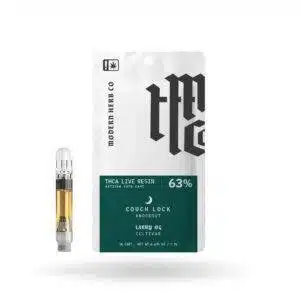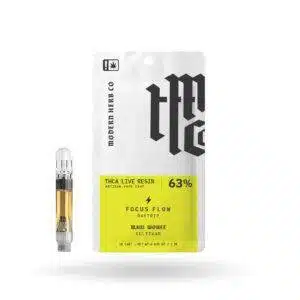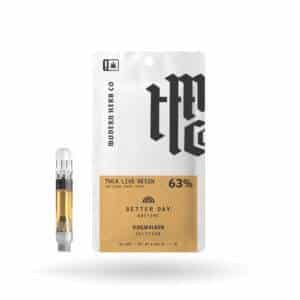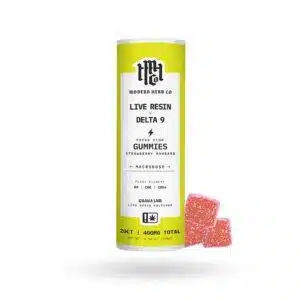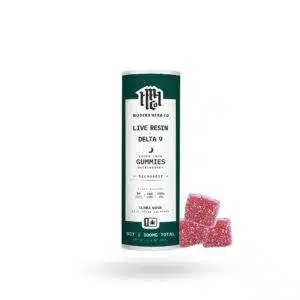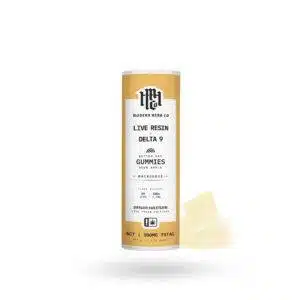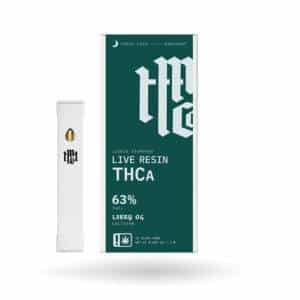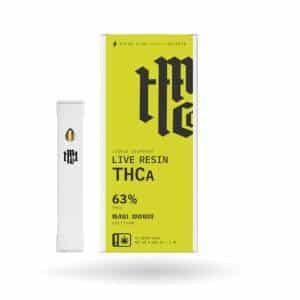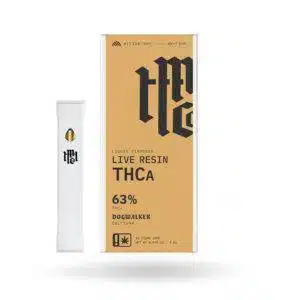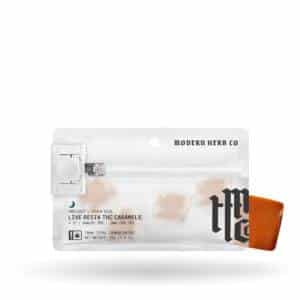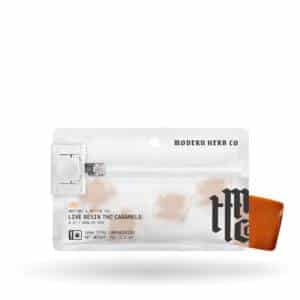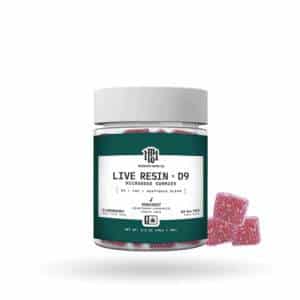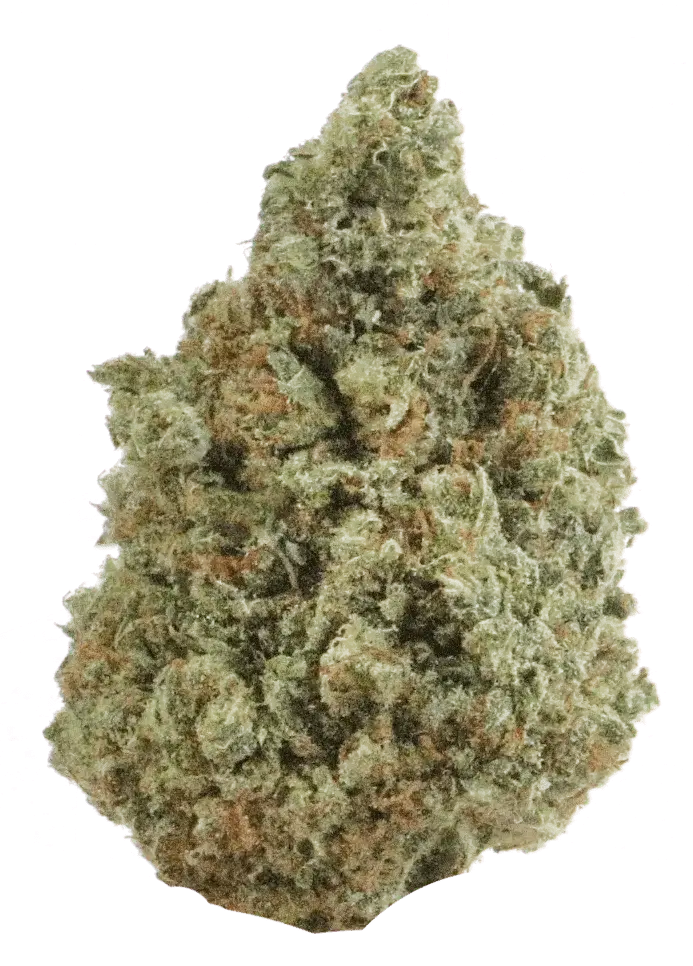Does THCA Turn Into Delta 9 When Smoked?

Does THCA turn into Delta 9 when smoked? This inquiry explores the fascinating process by which smoking exposes tetrahydrocannabinolic acid (THCA) to heat and transforms it into Delta-9 tetrahydrocannabinol (THC). Exploring this conversion sheds light on the dynamic nature of cannabinoids and their effects, offering insights into the chemical reactions that occur during cannabis consumption. Let’s delve deeper into this fascinating phenomenon to unravel the science behind THCA’s transition into Delta-9 THC.
What Is THCa?
- What Is THCa?
- What Is Delta-9 THC?
- Does THCa Turn Into Delta-9 When Smoked?
- What Is Decarboxylation?
- What Are The Different Ways To Decarboxylate THCA to Delta 9?
- Does Temperature Affect THCa Conversion?
- Smoking's Effectiveness in Converting THCa to Delta-9
- Is There a High When Smoking THCa?
- What Are The Effects Of A THCa High?
- What Is A High THCa Percentage?
- Types of THCa Products
- Types of Delta-9 THC Products
- Where Can I Purchase Delta-9 and THCa Products Online?
- Final Thoughts
- Frequently Asked Questions about THCA
The chemical known as tetrahydrocannabinolic acid, or THCa, is one of the substances that can be found in raw cannabis plants. It is vital to note that THCa, in its natural state, does not possess the same psychoactive effects as THC. THC, the molecule that occurs in cannabis and is responsible for its psychoactive effects, is generated from it. Heat is the catalyst that transforms THCa into THC, the psychoactive component that is responsible for the well-known “high” that cannabis users experience.
THCa is becoming of interest as of late due to its potential beneficial properties. It is critical to recognize that these potential benefits are still being investigated and have not yet been given the go-ahead by regulatory bodies like the FDA. Those who are interested in the effects and experiences of cannabinoids must comprehend the distinctions between THCa and THC.
What Is Delta-9 THC?
Delta-9 THC, the primary psychoactive ingredient in cannabis plants, is highly sought-after for its euphoric effects. Notably, Delta-9 THC is a product of the decarboxylation process of THCa, emphasizing the crucial role of heat in this conversion. When cannabis is in its raw form, it contains THCa, which only transforms into Delta-9 THC through decarboxylation triggered by heat application.
-
Live Resin Delta 9 Gummies: Daytrip Macrodose$10.00 – $36.00
-
Live Resin Delta 9 Gummies: Knockout Macrodose$6.00 – $36.00
-
Live Resin Delta 9 Gummies: Anytime Macrodose$10.00 – $36.00
In dispensaries, when a cannabis strain is labeled with a specific THC content, it refers to the THCa levels present in the raw flower before conversion into Delta-9 THC. With varying effects depending on the strain used, delta-9 THC is well-known for its strong psychoactive qualities. Indica strains often deliver a more sedative body high, while Sativa strains are associated with a more energizing and creative head high.
Does THCa Turn Into Delta-9 When Smoked?
Yes, THCA can be changed into Delta-9 THC by a process called decarboxylation, which is usually aided by heat exposure. Smoking cannabis containing THCA leads to the production of Delta-9 THC, with smoking being an efficient method for this conversion. When cannabis is smoked using methods like lighting a joint or using a vaporizer, the heat generated triggers decarboxylation, transforming THCa into the psychoactive Delta-9 THC. This process explains why smoking cannabis is linked to the well-known euphoric and psychoactive effects associated with Delta-9 THC.
What Is Decarboxylation?
Decarboxylation is the process of heating a molecule in order to remove its carboxyl group. This procedure transforms inactive cannabinoid acids into their active forms, such as THC and CBD, and is crucial to the extraction of cannabis and hemp. Decarboxylation is also a key step in the metabolic pathways of many organic compounds, where it releases carbon dioxide as a byproduct. The process of decarboxylation of THCA-rich cannabis initiates the conversion of THCA into Delta-9 THC, resulting in the activation of its intoxicating properties.
What Are The Different Ways To Decarboxylate THCA to Delta 9?
When decarboxylating THCA to Delta 9 THC, there are various methods available beyond smoking or vaping. These methods include baking edibles, making cannabis tinctures, and vaporizing cannabis. Each method involves exposing the cannabis to heat to activate the cannabinoids and convert THCA into Delta 9 THC. For instance, vaporizing cannabis is considered more efficient than smoking as it allows for precise temperature control, minimizing cannabinoid degradation. Additionally, commercial decarboxylation methods using temperature-controlled ovens ensure proper conversion of THCA to Delta 9 THC while maintaining product quality and consistency in dosing and potency. Other methods, like using a slow cooker or sous vide machine, can also result in efficient decarboxylation. Ultimately, the choice of method depends on individual preferences and desired effects, ensuring the transformation of THCA into psychoactive Delta 9 THC for various consumption options.
Does Temperature Affect THCa Conversion?
Yes, the conversion of THCa is impacted by temperature. When heated, smoked, or vaporized, the non-intoxicating compound in cannabis, known as THCa (tetrahydrocannabinolic acid), transforms into the intoxicating THC chemical. Research indicates that the transformation rate of THCa and other cannabinoids increases with rising temperatures, especially around 70°C. The process of decarboxylation, which converts THCa to Delta-9 THC, typically occurs when cannabis is heated or cooked at temperatures ranging from 100 to 160°C. It is important to note that the degradation effects on cannabinoids like CBD and THC start to occur at temperatures around 160°C. Therefore, controlling temperature is crucial in processes like extraction and decarboxylation to optimize cannabinoid conversion and minimize degradation.
Smoking’s Effectiveness in Converting THCa to Delta-9
Does THCA convert to Delta 9 during the smoking process, and is it effective? This inquiry underscores the chemical transformation that occurs when cannabis is smoked. When smoking cannabis, the heat from combustion converts THCa into Delta-9 THC through a process called decarboxylation. This conversion is not 100% efficient due to factors like temperature variations during smoking, leading to the potential loss of THCa. Studies indicate that while smoking a joint, 10%–40% of the THCa may not be transformed into Delta-9 THC.
Despite the conversion of THCa to Delta-9 THC when smoked, some individuals prefer THCA-rich strains for their non-intoxicating effects, making them suitable for other purposes without the psychoactive impact.
THCA into Delta-9 THC conversion is a crucial aspect of the smoking experience, influencing the potency and effects of the consumed cannabis. As a result, smoking cannabis efficiently activates THCa into Delta-9 THC, but the process may not be fully efficient due to varying temperatures during combustion. While both compounds have their own unique characteristics, some users opt for THCA-rich strains for their therapeutic benefits without the psychoactive effects of Delta-9 THC.
Is There a High When Smoking THCa?
Yes, when smoking cannabis, the conversion of THCA to Delta-9 THC is facilitated by the heat generated during combustion. THCa, in its raw state, lacks the psychoactive effects of THC. Therefore, smoking raw cannabis or THCa-rich products without decarboxylation may not induce the effects commonly associated with cannabis use.
What Are The Effects Of A THCa High?
What happens when you consume raw THCa? Unlike when smoked, it doesn’t cause a high. However, when you smoke it, THCa undergoes a transformation into Delta-9 THC, leading to potential cerebral and physical effects.
This cerebral high, often referred to as a head high, can manifest as increased creativity, which is one of the typical effects associated with THC. Interestingly, the type of high experienced can vary depending on the strain. Indica strains are associated with a more calming and sedative head high, while Sativa strains are more likely to produce an energetic and talkative head high. Sativa strains are generally more stimulating, making them suitable for daytime use, whereas Indica strains are often preferred for nighttime unwinding.
The effects of a THCA high can differ based on the strain of cannabis flower chosen. While these reported effects are subject to further study, it’s important to note that we cannot make any health claims related to them due to legal restrictions.
What Is A High THCa Percentage?
In terms of potency, strains with THC content above 15% are considered high, with elite strains reaching levels of 25% to 30% or more. For beginners, starting with strains containing 5% to 15% THC is advisable to gauge tolerance and preference. Overall, a high THCa percentage indicates a potent strain with the potential for strong effects, but it is essential to consider individual tolerance levels and preferences when choosing cannabis products.
Types of THCa Products
There are various types of THCa Products available, including THCa Carts, THCa Vape, and THCa Flowers from The Hemp Collect. To guarantee the greatest flavor and impact, these products are made with real live resin that has been extracted from cultivars that have won awards. The Hemp Collect offers a range of THCa products, such as live resin THCa vapes and disposables, with high potency levels. For instance, their live resin THCa vapes and disposables test at 63% THCa, providing a potent cannabis buzz.
When considering the potency of THCa products, the percentage of THCa that is considered high varies depending on the product type. A percentage of roughly 15% THCa in THCa flower is fairly potent and can produce a high. However, strains with higher levels of THCa, testing at least 20% and up to 25%, are also available. The most potent THCa flower can have levels approaching or exceeding 30% THCa.
The Hemp Collect’s products are known for their quality and effectiveness, offering a range of options for consumers looking for high-quality THCa products.
Types of Delta-9 THC Products
There are various types of Delta-9 THC Products available, including Delta 9 Gummies, Delta 9 Edibles, and Delta 9 Caramels from The Hemp Collect. These products are meticulously crafted using premium Delta-9 THC extracts to ensure quality and potency. The Hemp Collect offers a diverse range of Delta-9 THC products, such as Delta 9 gummies and edibles, known for their consistent effects and flavors. For example, their Delta 9 caramels are infused with high-quality Delta-9 THC distillate for a delicious and potent experience.
When considering the potency of Delta-9 THC products, the percentage of THC content can vary based on the product type. For Delta 9 edibles, a THC content of around 10 mg per serving is standard for a moderate experience. However, for those seeking stronger effects, products with higher THC concentrations, such as 25mg or more per serving, are also available. Remember, it is always best to start less than recommended and work your way up; dosage is different from person to person. The Hemp Collect’s Delta-9 THC products cater to a wide range of preferences and potency levels.
The Hemp Collect is recognized for its commitment to providing premium Delta-9 THC products that meet high standards of quality and effectiveness. Their selection of Delta-9 THC offerings ensures that consumers can find the right product to suit their needs and preferences.
Where Can I Purchase Delta-9 and THCa Products Online?
For high-quality THCa and Delta-9 products, consider purchasing online from reputable sources like The Hemp Collect. We offer a wide selection of premium products, each accompanied by a third-party lab-tested certificate to ensure quality and potency. You can explore our THCa products and choose your favorite strain from our range of offerings. The Hemp Collect is known for providing top-notch live resin, THCa, Delta 9, CBD, and cannabis products that deliver superior taste and targeted effects. With fast, free shipping options available for orders over $75, The Hemp Collect is a trusted online destination for those seeking quality THCa and Delta-9 products.
-
Live Resin Delta 9 Caramels Knockout (Organic)$7.00 – $41.99
-
Live Resin Delta 9 Caramels Anytime (Organic)$7.00 – $49.99
-
Delta 9 Live Resin Gummies: Knockout Microdose$25.00
Final Thoughts
Finally, the question of whether THCA turns into Delta-9 when smoked opens the door to an intriguing exploration of the chemical processes behind cannabis consumption. Through decarboxylation, the transformation of THCA into Delta-9 THC, when exposed to heat, such as through smoking, occurs. This conversion sheds light on the dynamic nature of cannabinoids and their effects, providing valuable insights into how different compounds interact within the body. While smoking THCA can lead to psychoactive effects associated with Delta-9 THC, it’s essential to understand the potential variations in potency and effects based on factors such as strain selection and individual tolerance. As regulations evolve and research progresses, continued exploration of THCA and its conversion into Delta-9 THC promises to deepen our understanding of cannabis and its therapeutic potential.
Frequently Asked Questions about THCA
Is THC Delta-9 Or THCA Better?
The question of whether Delta-9 THC or THCA is superior depends on individual preferences and desired outcomes. For those looking for therapeutic benefits without experiencing psychoactive effects, THCA might be a better option. However, since THCA can convert into THC when heated or burned, the optimal choice varies based on user preferences. If the goal is to experience a high without relying on THCA conversion, purchasing Delta-9 products may be the preferred option. Ultimately, the decision between THC Delta-9 and THCA hinges on personal preference and desired effects.
Is THCA Stronger Than Delta-9?
No, THCA does not possess greater potency than Delta-9 in inducing a psychoactive high, as THCA itself lacks psychoactive properties. However, the concentration of THCA in cannabis plants can influence the overall THC percentage, particularly as the plant matures or undergoes decarboxylation. Essentially, a higher presence of THCA can contribute to elevated THC levels when converted during the decarboxylation process, potentially resulting in a more pronounced psychoactive effect.
Is Delta-9 THC and THCa Same?
No, they are not the same or different from one another. While both are cannabinoids, they exhibit varying effects and possess unique chemical compositions. THCA doesn’t induce a high unless it undergoes decarboxylation, transforming into THC.
What Sets Delta-9 THC Apart from THCA?
One of the most significant differences between the two is that Delta-9 THC is capable of producing psychoactivity and intoxication, while THCa is not.
Is THCA Illegal?
No, the legality of THCA varies depending on state laws, with unregulated products posing risks such as inconsistent potency, contamination, lack of labeling, legal implications, safety concerns, and lack of consumer protection. THCA flower contains high levels of THCA and less than 0.3% Delta 9 THC in its raw form, offering potential therapeutic benefits without the traditional “high”. Similar to THC, THCA flower can have euphoric effects when heated or smoked. THCA can be consumed in various forms, like edibles or topicals, each providing different absorption rates and effects. It’s important to note that while standard drug tests typically target THC metabolites, some tests may detect THCA as a marker for cannabis use. Therefore, if you are concerned about drug tests, abstaining from using THCA products is advisable.
Will THCA Make You Fail a Drug Test?
Yes, THCA is likely to cause a positive result in standard drug tests because, when it is smoked or decarboxylated, it converts to THC. Most drug tests detect THC metabolites.
Do you still have questions about THCA? These articles discuss THCA in some detail:
WHAT IS THCA?
DOES THCA GET YOU HIGH?
THC VS. THCA: WHAT IS THE DIFFERENCE?
UNDERSTANDING THE BASICS: THCA VS DELTA 9 IN CANNABIS
HOW LONG DOES THCA STAY IN YOUR SYSTEM?
Are you curious to know more? For answers to your questions, go to our THCA blog section, send us an email at wholesale@thehempcollect.com, or give us a call at (503) 438-6985. You can get assistance from our friendly and competent support staff.

